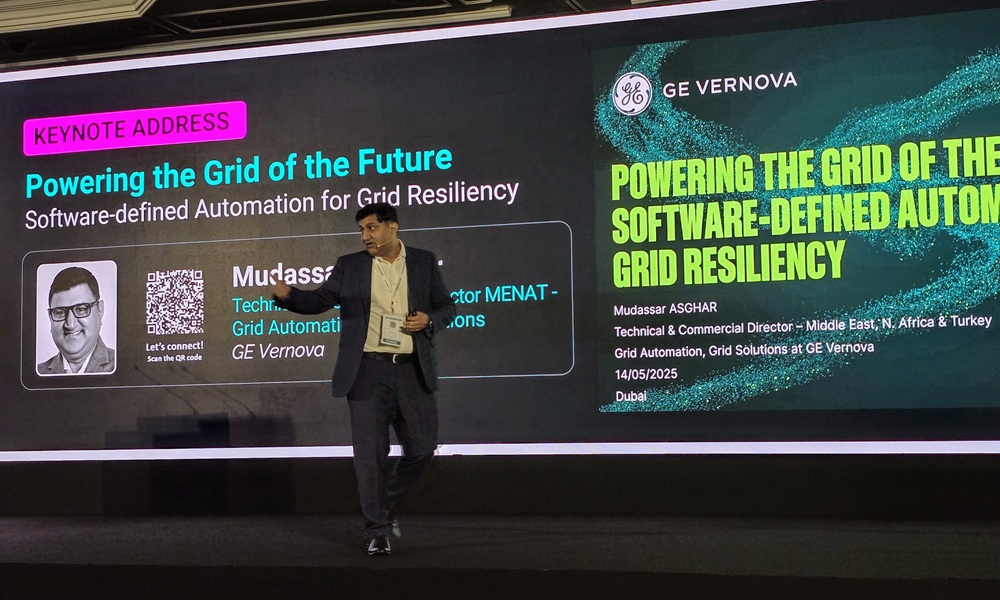Following the power outage that affected 55 million people in southern Europe, Mudassar Asghar, Technical & Commercial Leader at GE Vernova, emphasised the critical importance of securing national grid infrastructures at the Energy and Water Summit hosted by Big Project Middle East magazine in Dubai today.
His remarks came in the context of the growing adoption of renewable energy sources heavy industries and rising demand from technologies such as electric vehicles (EVs) and machinery, factors that significantly affect grid stability and security.
The discussion gained urgency in light of the recent significant power outage affecting Spain, Portugal, and southern France. At the time of the outage, Spain and Portugal were leading the European Union in renewable energy generation, sourcing about 80% of their electricity from solar and wind. This high reliance initially raised questions about whether the grid had been overloaded due to intermittent renewable sources.
Although, some industry analysts have subsequently dismissed this theory. Daniel Muir, a senior European power analyst at S&P Global, reported last week that: “The nature and scale of the outage make it unlikely that the volume of renewables was the cause, as the Spanish network frequently manages very high levels of renewable production.”
Mudassar Asghar highlighted that integrating renewable energy sources introduces complexities due to their intermittent nature, creating a need for advanced, software-driven grid management solutions.
“The introduction of renewable energy sources, like solar and wind, is crucial for decarbonisation, but it also disrupts traditional power flows, potentially leading to frequency and voltage instabilities,” he explained.
Asghar further emphasised the need for digitalisation and the deployment of intelligent systems to mitigate these challenges.
“Real-time monitoring, digital substations, and robust cybersecurity measures are essential tools that utilities need to maintain grid stability,” he said. GE Vernova, he noted, has developed a suite of software-defined solutions including advanced asset management platforms driven by artificial intelligence (AI) and machine learning, as well as integrated digital substations that significantly enhance grid resilience.
“We want to secure our grid from any outside hackers who can attack the system and block the network. It’s happening. There are certain events happening in the past or some time ago as well, that the attack was on the grid and there was all blackouts. And this was impacting everyone. So it’s a lot of money being lost by the government and the utilities.”
